APicking the right time and day to send an email makes me groan.
Should I send it in the morning? Weekends? Fridays? The dilemma is common with marketers.
But Account Engagement’s new feature takes away the mystery.
Einstein Send Time Optimization chooses the optimal time to send an email to maximize the probability of recipients opening the email.
(Pull up a chair.)
What is Einstein Send Time Optimization (STO)?
While Marketing Cloud has had Einstein STO for more than a year, Account Engagement now has the added feature with the Summer 2021 release to maximize the open rate of email sends based on the send time.
Marketers can use STO to identify the best time to send an email. Behind the scenes, Account Engagement has a model that uses email engagement data (sends, clicks, opens and bounces) and the associated timestamps.
STO is available in Account Engagement Advanced and Premium editions (Lightning Experience) and only in the new Email Builder. It is currently not available in Engagement Studio.
Why use Einstein STO?
Einstein STO sends your email at precisely the right time, and you will likely get a higher inbox placement. Higher inbox placement means that you will get more opens and clicks. It’s that simple.
Plus, it’s as easy to use as ordering on Amazon.
How do I enable Einstein STO?
From Marketing Setup, in the Quick Find box, enter “Einstein”, and then select “Einstein Send Time Optimization.” Click Activate.
Quick reminder here to be patient. Once enabled, the system can take up to 72 hours before the models are ready.
How does it work?
When you send an email from the Email Content tab, Einstein STO gives you another choice for Send Time. Choose “Einstein Optimized” and complete the fields for “Send date”, “Time” and “Send emails within” (a time window in hours).
How do you know what time period to choose?
If you want a more targeted time period but want to experiment with different times, try 24 to 48 hours.
Or, if you want to know the best day to send an email, enter a five-day time window.
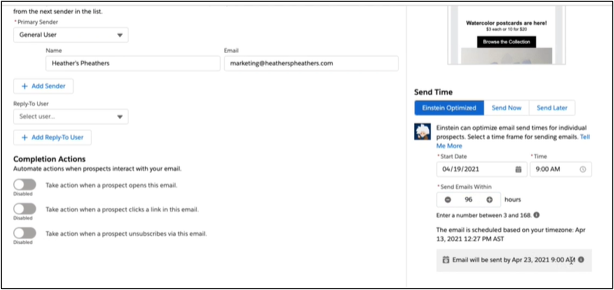
Image: Salesforce
Where do you see your results?
Once you schedule your email, go to the Account Engagement Report tab and select “List emails.” You can see emails sent and how many are still in the queue.
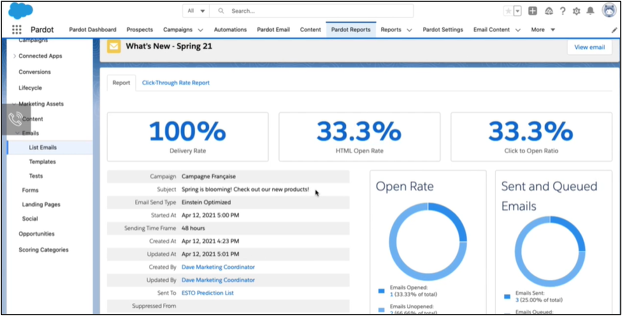
Image: Salesforce
You can also filter by “Sent” or “Queued.”
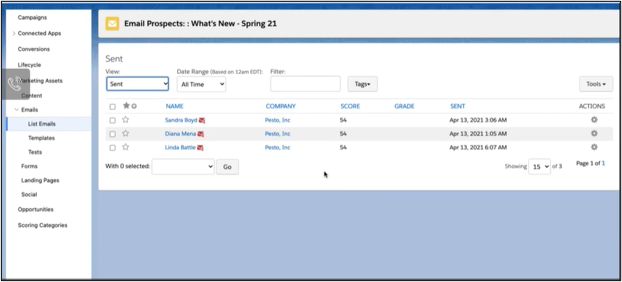
Image: Salesforce
The nerdy stuff (not really)
Let’s talk about how the Einstein STO model works.
STO uses machine learning to predict when your contacts are most likely to engage with an email.
It evaluates several factors that relate to engagement over the past 90 days of actual data:
- Engagement Behavior (sends, clicks, opens and bounces) and associated timestamps.
- Data and metadata about customer sending patterns and how campaigns are executed
Einstein STO does NOT analyze these factors:
- Demographic Data
- Specific content within the email template or rendered email body
- Data purchased or collected from third parties
Ideally, Account Engagement looks for 90 days of email activity. While STO can work with as little as one interaction with a prospect click, more data means better recommendations. (The more you use the model, the more accurate the model will get.)
How does STO determine optimal send times?
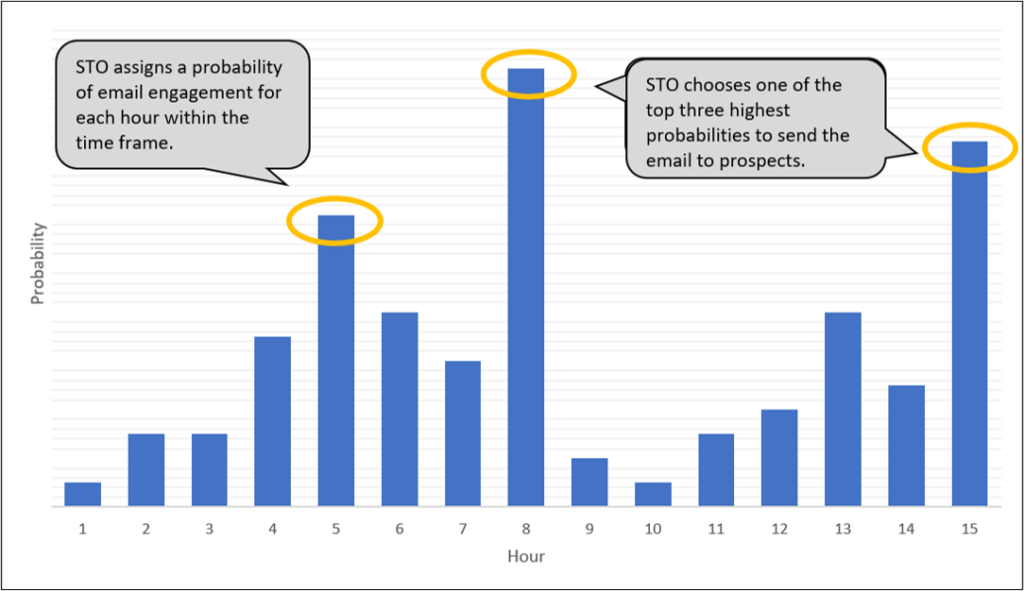
Einstein STO calculates the probability of opening the email for each of the hours in your time window. It then picks one of the highest probability hours and assigns it to each of your email recipients. As a result, Account Engagement sends your email at the optimal time based on your history of email opens.
Good luck!
